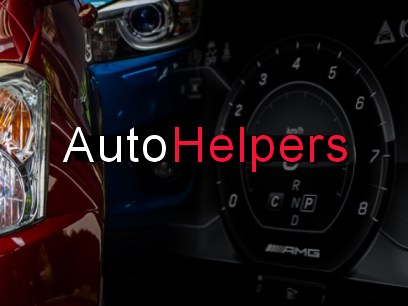Types
Brands
- Acura
- Alfa Romeo
- Alligator
- Apollo Automobil
- Aprilia
- Arch
- Arctic Cat
- Aston Martin
- Audi
- Bentley
- BMW
- Bollinger
- Boss Hoss
- Buell
- Bugatti
- Buick
- Cadillac
- CanAm
- Caterham
- Chevrolet
- Chrysler
- Citroen
- Cleveland CycleWerks
- Curtiss
- Dacia
- Dodge
- Ducati
- Ferrari
- Fiat
- Fisker
- Ford
- General Motors
- Genesis
- GMC
- Harley Davidson
- Honda
- Husqvarna
- Hyundai
- Indian
- Infiniti
- Jaguar
- Janus
- Jeep
- Karma
- Kawasaki
- Kia
- Koenigsegg
- KTM
- Lamborghini
- Land Rover
- Lexus
- Lightning
- Lincoln
- Lordstown
- Lotus
- Lucid Motors
- Maserati
- Mazda
- McLaren
- Mercedes
- Mercury
- MG
- Mini Cooper
- Mitsubishi
- Moto Guzzi
- MTT
- Nikola
- NIO
- Nissan
- Pagani
- Peugeot
- Piaggio
- Polaris
- Polestar
- Pontiac
- Porsche
- Ram
- Renault
- Rimac
- Rivian
- Rokon
- RollsRoyce
- Royal Enfield
- Saab
- Saturn
- Scion
- SEAT
- Ski-Doo
- Skoda
- Smart
- Spyker
- Subaru
- Suzuki
- Tesla
- Toyota
- Triumph
- Vauxhall
- Vespa
- Volkswagen
- Volvo
- Yamaha
- Z Electric Vehicle
- Zero Motorcycles
Article Categories
- Acura News
- Alfa Romeo News
- Aston Martin News
- Audi News
- Bentley News
- BMW News
- Buick News
- Cadillac News
- Car News
- Chevrolet News
- Chrysler News
- Dodge News
- Fiat News
- Ford News
- GMC News
- Honda News
- Hyundai News
- Infiniti News
- Jaguar News
- Jeep News
- Kia News
- Lexus News
- Lincoln News
- Mazda News
- Mercedes News
- Nissan News
- Porsche News
- Subaru News
- Tesla News
- Tips and Tricks
- Toyota News
- Volkswagen News
- Volvo News
More Articles

Karma Repair
Karma Automotive is an American producer of luxury electric vehicles founded in 2014. Headquartered in Irvine, California, United States with an assembly plant located in Moreno Valley, Karma sells vehicles via its dealer network of locations in North America, Europe, South America, and the Middle East.
Automobile Repair
Karma manufactures cars that owners have come to trust. Even a trustworthy autos require occasional maintenance or repair, however. If you’re in need of Karma Auto repair from experienced professionals, your local Auto Helper can help.
Rust
It can come as a shock to find rust on your car though it doesn’t always represent a serious issue it depends on where the rust is found. Rust on the bodywork is cosmetic but rust underneath the car or on your exhaust could be potentially dangerous and should be investigated as it could eat away at essential components. Rust needs an anode, cathode, and an electrolyte to form which makes cars prone to it. If the climate is humid enough your car can develop rust even if it’s undercover. The metal in your car can act as the anode and cathode and water is an electrolyte. A quick check around your vehicle, under the wheel arches, and around the exhaust on a regular basis is often enough to spot any rusting issue but every few months, especially if you live in a damp or humid environment, it would be a good idea to get on your hands and knees and check under your vehicle thoroughly.
Excessive Oil Consumption
It's a fact of life: Your car will need fresh oil to stay functioning. However, if you're finding it's needing changes and top-ups more frequently than it should, there might be a problem. Early signs you need to check your oil include a minor dip in performance and the ever-dreaded oil light on your dashboard. When your car is in particularly dire need of an oil change, you may even start to see corrosion in its engine. Another oil-related complaint is the clogged oil filter. You'll probably see this problem if you've waited too long to change the oil. While modern cars come with systems that are equipped with filter bypasses, it's a good rule of thumb to change the filter whenever you change the oil.
Minor Leaks
Smaller leaks may be less urgent, but they still will require your attention. if the source of your oil leak is the oil filler cap, you can buy a replacement at your local auto parts store, or a dealership parts department. If your leak is coming from the oil filter, and you know how to change your oil, you can replace the filter with a new one. after you drain the old oil, remove the old filter and make sure its seal doesn’t stick to the engine. then thread the new filter on carefully and tighten it securely. be sure to correctly insert and tighten the drain plug, as well. then add the new oil.
Transmission Fluid Leaks
Your vehicle's transmission requires a special fluid to keep its components well lubricated. In cars with automatic transmissions, transmission fluid also works as a hydraulic fluid and coolant. Throughout your car's life, small holes can form anywhere in this system, such as in the fluid lines, seals, or gaskets. These tiny tears allow transmission fluid to escape, causing a leak. If the leak is bad enough to lower the overall fluid levels, your transmission will lose efficiency and may eventually fail, whether from overheating or internal pressure loss. Leaks can also come from cracks in the transmission pan that collects excess fluid. When that happens, you'll probably see a big red puddle under your vehicle.
Transmission Problems
Outside of your engine, the transmission is the most important component that you'll find under the hood of any vehicle. In fact, in some vehicle drivetrains, replacing the transmission costs even more than replacing an engine. Some of the most common transmission problems are noticeable lapses in gear changes, grinding during gear changes, a burning smell, and gears slipping. One key thing you need to do to take care of your transmission is regularly changing the fluid at the manufacturer's suggested intervals. The fluid helps keep the transmission cool and helps serve as a lubricant between its various components to keep it running smoothly.
Failed Thermostat
An engine coolant thermostat controls engine temperature by blocking coolant flow to the radiator until the engine reaches a predetermined temperature. because of this, the engine can first warm-up efficiently, and then begin to maintain a safe operating temperature once the thermostat opens and allows coolant to circulate. When a thermostat fails, it can either stick open or closed. In both cases, you may find that the heater doesn't blow warm air into the passenger compartment. a thermostat that is stuck open makes it difficult for the engine to warm up and can cause it to run colder than normal.
Worn Seals or Gaskets
If your vehicle has worn out or damaged crankshaft seals or valve cover gasket, then it will likely be leaking oil. Once that happens, your engine will be losing oil whenever you’re driving. This means you will need to constantly top off the engine oil to avoid engine damage. If you have seals or gaskets that are leaking oil, get them fixed asap. Usually, it’s a fairly inexpensive process that will save you a lot of money in the long run.
SOURCE: https://www.yourmechanic.com/article/top-12-most-common-car-problems-and-issues

